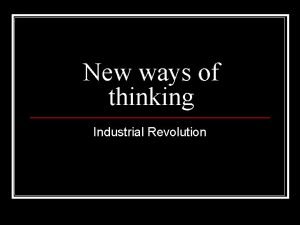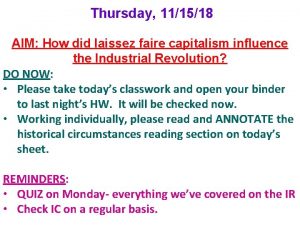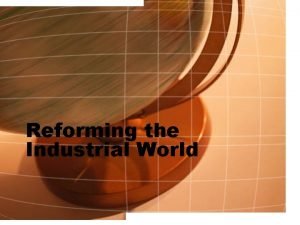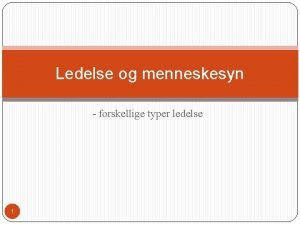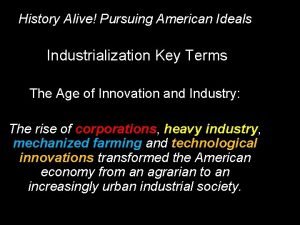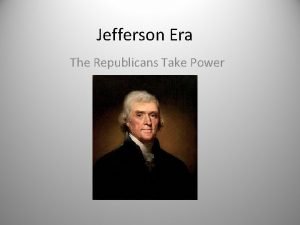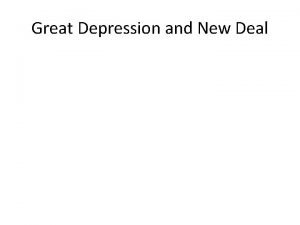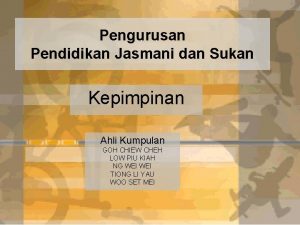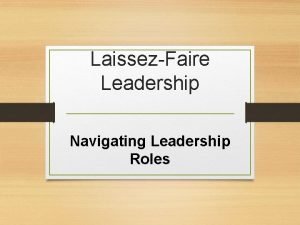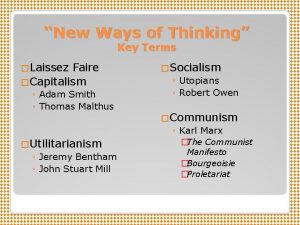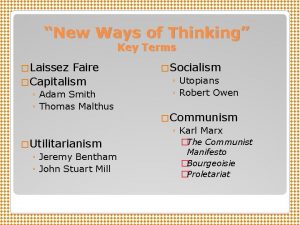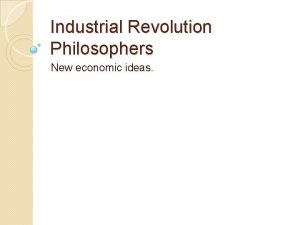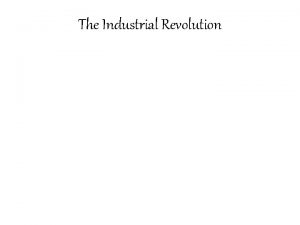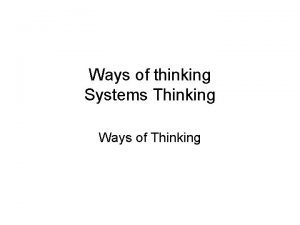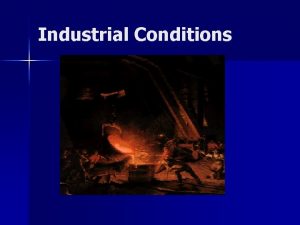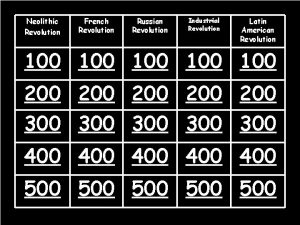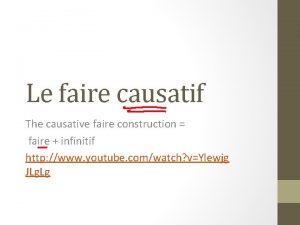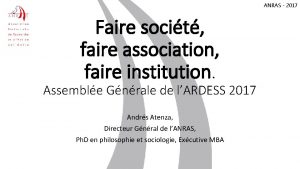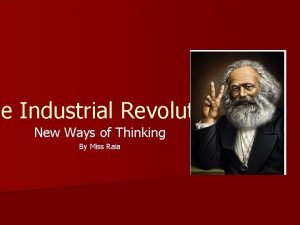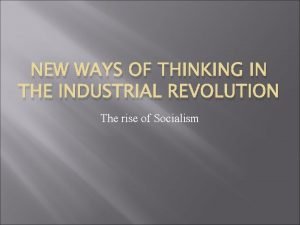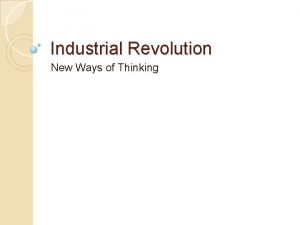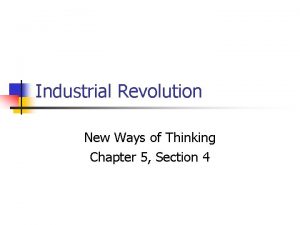New ways of thinking Industrial Revolution Laissez Faire














- Slides: 14

New ways of thinking Industrial Revolution

Laissez Faire Economics n Government should not interfere with the economy n “Hands off”

Adam Smith n Free market would produce more goods at lower prices, affordable. n Growing economy encouraged capitalists to reinvest profits in new ventures n Wrote, Wealth of Nations

Thomas Malthus n Population would outpace food supply n As long as population kept increasing, poor would suffer n People have fewer children

Socialism The people as a whole, rather than private individual, own & operate the means of production n Created communism n

Karl Marx n Entire course of history was history of “haves” and “have nots” n Modern class struggles pitted the bourgeoisie against the proletariat (working class) n Would happen through revolutionary change

Marx n In the end, Proletariat would take control of the means of production and set up a classless, communist society. In such a society, wealth and power would be equally shared n Wide influence over Industrial Europe

Marx on history ‘The history of all hitherto existing society is the history of class struggle. ’ -Marx believed in 2 major ideas -Class Struggle -Revolutionary Change

Marx’s belief on Revolution Marx predicted that wealth would belong to fewer and fewer people. n The workers would eventually realize their position and overthrow the bourgeoisie n There would be an armed revolution which would begin in Industrial Britain. n It would happen in the very near future (1880’s). n

Communist Revolution will eliminate private property. No longer will man have the means of exploiting another man. n Bourgeoisie will fight, so revolution will be violent. n A dictatorship of the proletariat will follow to weed out remaining capitalist elements. n

Areas of Reform Great Britain

Labor Laws Shorter work days n Increased safety n Minimum Wage n

Education Gladstone’s Education Actfree education for elementary children

Women’s Suffrage Emmeline Pankhurst fought for Women's suffrage (right to vote) it was granted in 1918 to women over 30
 Laissez faire industrial revolution
Laissez faire industrial revolution Benefits of capitalism
Benefits of capitalism Karl marx definition
Karl marx definition Laissez faire parenting
Laissez faire parenting X menneskesyn
X menneskesyn I suppose
I suppose Near east vs middle east
Near east vs middle east Laissez faire definition world history
Laissez faire definition world history Why had farming become unprofitable during this period
Why had farming become unprofitable during this period Laissez faire jefferson
Laissez faire jefferson Hoovervilles great depression
Hoovervilles great depression Laissez faire great depression
Laissez faire great depression Maksud autokratik dalam pendidikan
Maksud autokratik dalam pendidikan Ronald reagan laissez faire leadership style
Ronald reagan laissez faire leadership style Laissez faire ledelse
Laissez faire ledelse
